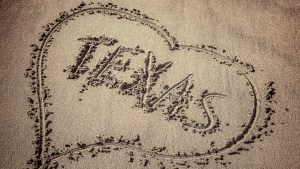One of the most painful days for me at church is Mother’s Day.
Last year I celebrated it for the first time as a mother. But a day that was supposed to be full of joy and celebration turned out to be incredibly challenging. My husband, Joseph, and I had just lost our son, Marion, to miscarriage a short three months before. At the end of Mass, our parish priest paused after the final blessing and asked all the mothers to stand for a blessing.
I knew to expect this blessing — I grew up watching my mom stand up and longing for the day when I, too, could stand. After losing Marion in March, I knew May was coming, bringing Mother’s Day with it. And even though I stood, I felt like an empty shell. I remember blood rushing to my face, my eyes brimming with tears, my hands clamped shut and clammy. But I stood up. Because I was a mom — even if our son was in heaven. After the blessing of mothers, I sat down, shaking.
Even though I was (and still am) a mother, I felt like a failure. My heart, mind, and soul had longed for the little growing baby inside of me, but I thought my body had failed at motherhood. As a mother that day, I felt so alone. It seemed that all of the mothers around me had children in their arms, or gathered in the pew beside them. Proud grandmothers were surrounded by children and grandchildren. I was standing shakily in my pew, wondering how I could even go about parenting a little saint who was already with God.
I felt ugly; tears streamed down my face. My dress was crumpled from where I had clutched it when I stood. I felt disheveled. I felt forgotten. I thought that only Joseph, who was sitting beside me, knew what was going on in my heart that day. Everyone else seemed so wrapped up in their own joy that they didn’t notice my tears.
Mothers’ Day can be hard for so many reasons. Perhaps you, like me, have little ones in heaven. Maybe you, too, carry the cross of infertility and wonder if you’ll ever have the joy of holding a child in your arms. I wish I could wrap my arms around you and give you a hug. But here’s what I want you to know — and what I wish someone would have told me that first Mother’s Day after losing our son:
You are not a failure
Miscarriage and infertility can leave you feeling ashamed and inadequate. You question whether your story is too much for others to hear. You wonder if your story is not enough for others to care about. But you are not a failure. Your infertility isn’t your fault. So often, magazines articles, online forums, and well meaning friends will encourage you to take this vitamin, or do this exercise, or don’t ever eat this. But infertility isn’t something we chose, and it isn’t something we can control.
Don’t let the devil sneak his lies around your heart. “There is, then, no reason for feeling they are failures,” writes St. Josemaria Escriva, when he was asked about couples who carry the cross of infertility. “If the married couple have interior life, they will understand that God is urging them to make their lives a generous Christian service, a different apostolate from the one they would have fulfilled with their children, but an equally marvelous one.”
You are not alone
Infertility and miscarriage can be incredibly isolating and lonely. Because both of those crosses are rarely talked about, you can be left feeling like you’re the only one. Whether you’re scrolling through Instagram, shopping at the grocery store, or kneeling down after communion, it seems like everyone else is pregnant. The woman who got married the same summer you did already has three children. The friend who said she didn’t want children has a baby in her arms.
Oh sister, you’re not alone. Studies have shown that 1 in 6 couples will experience infertility. That doesn’t mean that 1 in 6 women will never be pregnant, but means that a lot of us know exactly what that ache in your heart feels like if this is your cross to carry, too. Studies also show that anywhere from 10 to 25 percent of pregnancies will end in a miscarriage. So many of us are mothers to children we can’t see.
You are a beautiful woman
When your story as a woman includes infertility, or the loss of a child, you can be left questioning your femininity. After all, we’re told that women’s bodies are meant to bring new life into the world. If you’re carrying the cross of infertility, or mourning the loss of a child, you can feel like everything that makes you a woman has been stripped away from you.
There are so many misconceptions about what it really means to live out the “feminine genius” as a Catholic woman. There is no one, perfect, correct way to live out your femininity. “Sometimes we make the mistake of idolizing certain things – good things! And then we treat those good things as if they’re the ONLY things a Catholic woman can do,” writes Haley Stewart from Carrots for Michaelmas. Your femininity is not defined by the size of your family. Or whether you can bear life in your womb. Or whether you’re the mother to littles here on earth, or saints in heaven. God has created you a woman. He sees you and says you are good. Sister, you are beautiful.
You are loved and remembered
On a day where we honor mothers, I want to stop and remember you, sister. I know the days where you have felt like Hannah, crying out in the temple, offering God anything in exchange for a child. Like you, I’ve laughed like Sarah at God’s plans. We know what it’s like to feel like Hagar, exiled or forced to flee from situations because of grief. We’ve all been Rachel, knowing the grief and pain when you’re told that your baby’s heartbeat can’t be found in the sonogram.
Today, maybe you’re carrying the heavy cross of infertility. You’re not a mother yet, even though you thought for sure you’d be holding a little one by now. You’re thought of, cared for, and wrapped in prayer today. Perhaps your cross looks different, and you’ve lost a child to miscarriage or infant loss. You’re loved, sister. You’re worthy. You’re good. Just the way you are.

Read more:
Catastrophic loss: What not to say while giving aid and comfort

